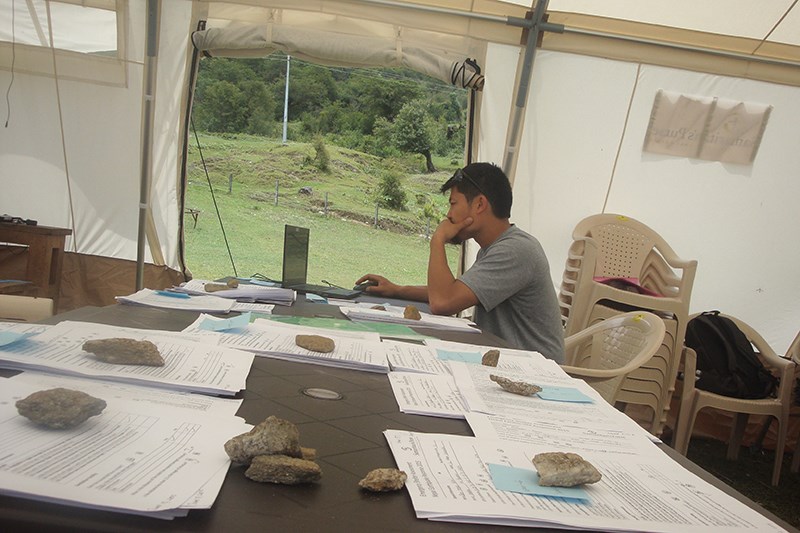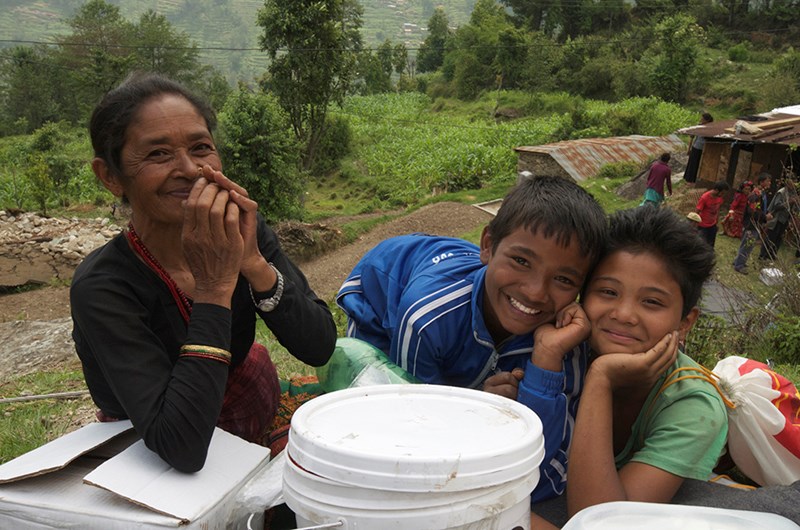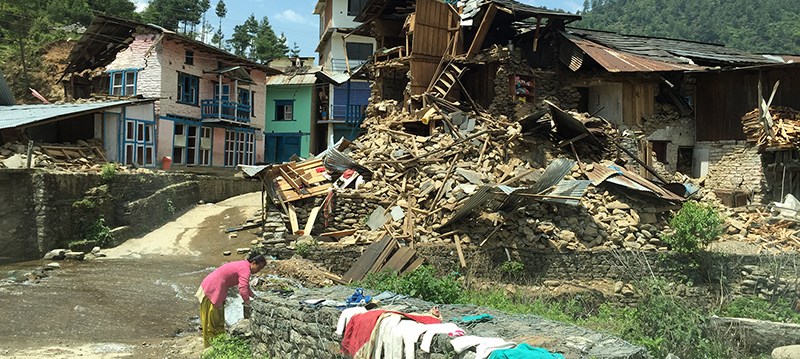Thirteen hours after a quake with a magnitude of 7.8 struck Nepal, engineer Wes Tse, woke up to find his email in-box crammed with messages.
"A disaster has happened, it's probably pretty serious, let us know your availability," the messages read.
Another young man only nine years out of high school might have rolled over and gone back to sleep, but Tse, a professional engineer, was on his feet and thinking of ways to get to the devastated country.
"That's the scariest thought right now, as the media wanes and the coverage and the attention goes away so does the money," Wes Tse, Coqutilam engineer and volunteer
This wasn't the first time Tse had been called to assist in natural disaster or humanitarian crisis. The Coquitlam resident has already served in Sierra Leone and the Democratic Republic of the Congo, and the Philippines, volunteering for either Samaritan's Purse, a Christian relief organization, or Engineers Mission International, a group that provides sustainable safe water and sanitation solutions for people in developing countries.
With this kind of background, plus his paid work as a project manager, Tse is sought after for his training and expertise.
"I can work inside difficult areas," explained Tse in an interview with The News, about a week after returning from Nepal.

For Tse, being able to assist others in a crisis and to help people build their own capacity to rebuild after a disaster is a great way to spend his "vacation," and, less than a month after the quake, he was flying into Kathmandu to help Samaritan's Purse with relief efforts.
"There are much smarter people out there, and people who are much more qualified, but it's being able to go there and say this is broken, this is how you fix it," says Tse modestly of his abilities and skills.
The initial work involved handing out tarps, blankets, hygiene and cooking kits to Nepalese people who lost everything in the quake, including their homes. But Tse had an even more challenging job ahead, one that took him over hundreds of kilometers of poorly-constructed windy roads, some washed out by heavy rains.
His team's destination was Charikot in Dolkha district, a small town in a mountainous region of Nepal's north east where people are hard to reach and among the most vulnerable.
After getting set up (a tent inside a partially-destroyed school was home, at least for the first night,) Tse's job was to assess the housing situation and make arrangements to build 2,500 temporary homes for those hardest hit by the quake.
"In our district, 95% of houses are irreparable. That's basically because it's poor, it's more rural, and they don't have any construction practices."
While his heart went out to the families who were devastated by the quake, Tse was also impressed with the work ethic of the Nepalese, like the sherpas of Everest fame, who could walk miles carrying a heavy load, and yet always managed to smile at the end of a long day.
"One of the post cards you'd see is a porter with a heavy pack walking up a mountain — pretty much everybody does that," Tse said. "It's not something I can do; they're pretty inspirational."

His job turned out to be a logistical challenge, but that's not unusual when working in a developing country, according to Tse. Relief organizations such as Samaritan's Purse typically have to deal with a myriad of local business people and authorities, international go-betweens, funders, governments and NGOs to get anything done.
On cold nights, Tse slept with extra blankets, wondering how the Nepalese would fare when winter arrived, and ate the same food as the locals - rice and dal (lentils).
"That gets old pretty fast," Tse joked, remembering his daily meals, (the locals only ate two meals a day, while the expat team would sneak an occasional breakfast.)
One of his most enjoyable meals was a glass of milk. "It was the freshest glass of milk I've every had in my life."
However, the most important task of Tse's nearly month-long visit was to make sure the temporary houses got built for those that needed them most. Locals were hired to do the construction and trained to build safer homes and arrangements were made to get materials — such as steel pipes and corrugated galvanized tin sheets.
Unfortunately, with monsoon season underway, the roads started to become impassable and Tse had to head back to Coquitlam before the first house was built.
He does fear that donor fatigue will dry up funds before Nepal's rebuilding efforts are complete. "That's the scariest thought right now, as the media wanes and the coverage and the attention goes away so does the money."
But he's at home knowing that the groundwork has been laid, the materials have been purchased, and plans are in the works to build safer homes in Nepal for the future.



